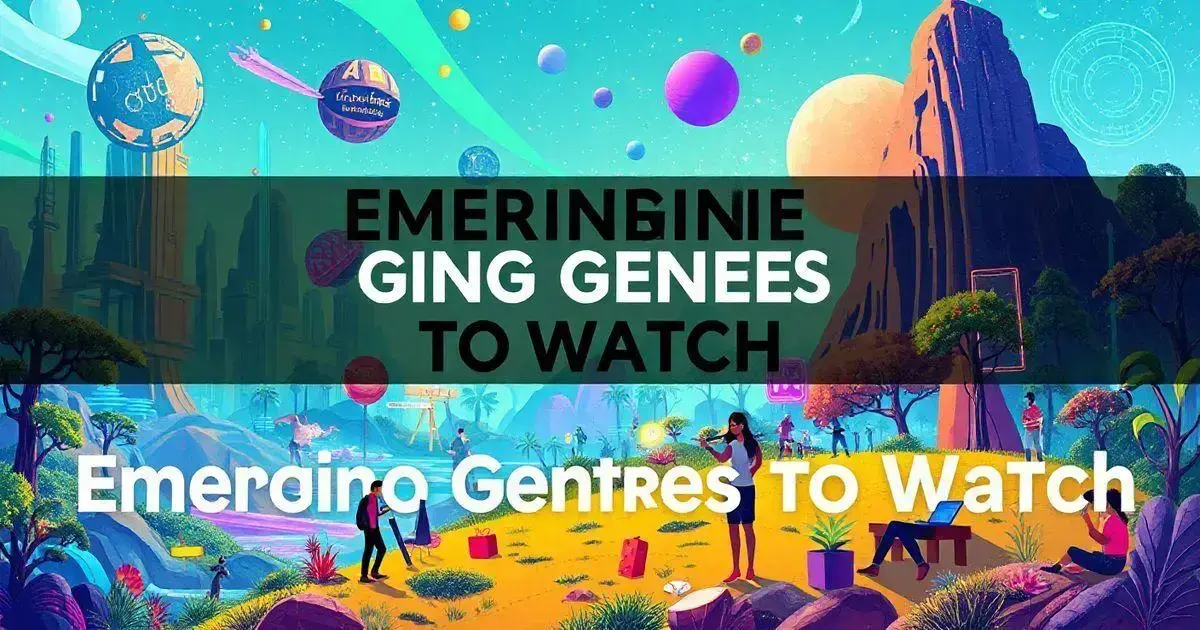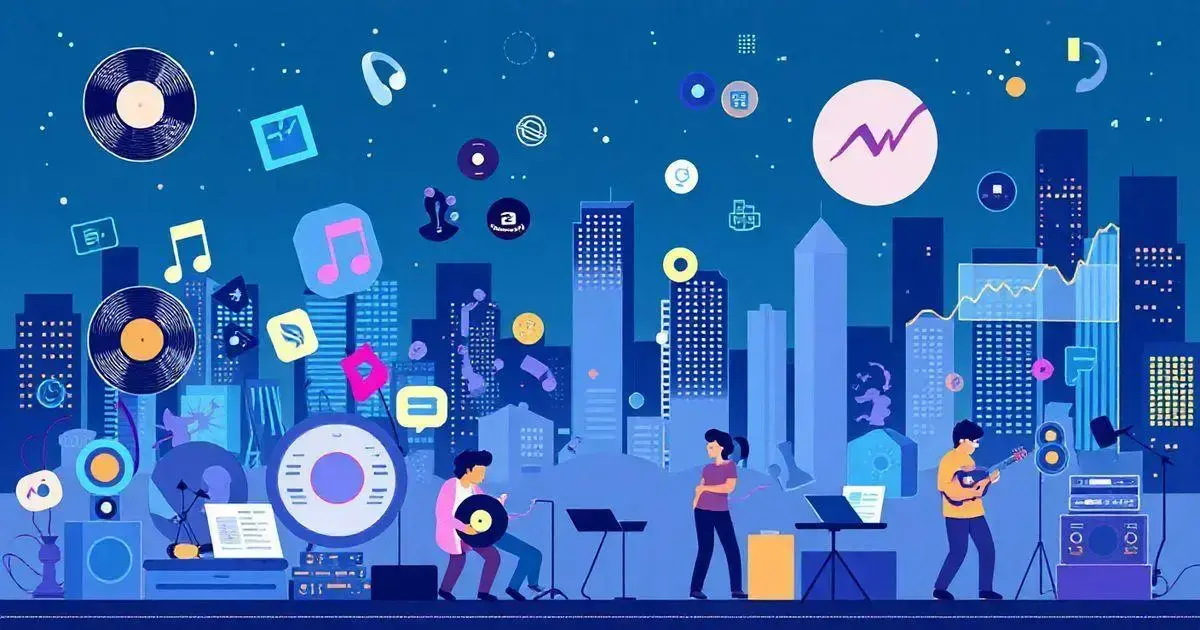Índice
Music industry insights are vital for understanding the ever-evolving landscape of music. As technology advances, the way music is created, distributed, and consumed continues to change. Staying informed about these shifts is essential for artists, producers, and industry professionals.
With the rapid growth of streaming platforms, the music business has become more data-driven than ever. Social media also plays a crucial role, allowing musicians to connect directly with their audience. Keeping up with music industry insights helps artists and labels adapt to these trends and maximize their reach.
To succeed in this competitive field, understanding music industry insights is key. Keep reading to explore the latest trends, emerging opportunities, and strategies to stay ahead in the ever-changing world of music.
The Evolving Trends in the Music Industry
Current trends highlight a rapidly changing landscape where music industry insights are essential. Digital streaming has transformed music consumption, with platforms like Spotify and Apple Music dominating. Artists now use short-form content on social media to expand their reach and engage with fans.
Independent artists are on the rise, no longer relying on record labels to succeed. Music industry insights show that self-released music is growing, giving artists more creative control and financial independence.
Data analytics plays a key role in shaping strategies. Understanding listener behavior helps optimize marketing and touring. By using music industry insights, artists can maximize engagement and grow their fan base.
Genre boundaries are blurring as cross-genre collaborations gain popularity. Music industry insights reveal that these unique blends attract diverse audiences and push creative limits. With evolving technology, the industry remains a hub for innovation and artistic growth.
Impact of streaming services

The impact of streaming services on the music industry has been profound. Platforms like Spotify and Apple Music have changed how artists publish their music and how listeners enjoy it. These services offer vast libraries of songs, making it easier than ever for music lovers to discover new artists.
With streaming, artists now focus on their release strategies. Instead of launching full albums, many choose to release singles more frequently. This trend helps maintain audience engagement and allows for data tracking to understand listener preferences.
Moreover, royalties from streaming services differ significantly from traditional sales. Artists often earn less per stream compared to album sales, pushing many to find diverse revenue streams, such as merchandising and live performances.
The role of playlists has also grown, with curators showcasing tracks that can lead to significant exposure for emerging artists. Getting featured on popular playlists can dramatically increase an artist’s following.
In short, streaming services have redefined music consumption, requiring artists to adapt and engage their audience in new ways.
Role of social media in music promotion
The role of social media in music promotion has grown tremendously in recent years. Platforms like Instagram, Facebook, and Twitter allow artists to engage directly with their audiences, creating a personal connection that was not possible before.
Artists can share behind-the-scenes content, music clips, and live performances, generating buzz around their work. This real-time interaction helps build a loyal fan base and keeps audiences engaged.
Additionally, social media is a powerful tool for discovery. Many listeners find new music through recommendations from friends or trending posts, making it crucial for artists to maintain an active online presence.
Hashtags also play a key role. By using popular hashtags related to their music, artists can increase their visibility and reach a broader audience. This strategy helps them tap into trends and conversations happening in the music scene.
Moreover, collaborations with influencers and other musicians on these platforms can amplify an artist’s reach. Featuring in a popular influencer’s content can open doors to new audiences, making partnerships valuable for growth.
Emerging genres to watch

The evolution of music is shaped by culture and technology, making music industry insights essential. Lo-fi hip hop has gained popularity for its relaxing beats, often used for studying and working. Bedroom pop is also rising, with artists producing music from home, valuing authenticity and low costs.
Afrobeats blends African rhythms with global influences, becoming a favorite at dance events. Artists like Burna Boy and Wizkid have pushed it into the mainstream. Trap music also continues to evolve, expanding beyond rap into pop and electronic music. Music industry insights show how these trends shape modern sounds.
Indie folk remains strong, featuring acoustic elements and deep lyrics. Platforms like Bandcamp help independent artists share their work without labels. These emerging genres highlight music’s diversity, and staying updated with music industry insights helps artists adapt and grow.
The importance of data analytics
Data analytics in the music industry is crucial due to digital platforms providing access to valuable listener information.
Benefits include:
- Understanding trends and audience preferences
- Informed decisions through streaming numbers and sales figures
- Insights into geographical popularity for tour planning
- Tailoring content based on demographic data
Summary: Data analytics empower music professionals to navigate the industry with confidence and strategic insight.
Future predictions for the music landscape

Future predictions for the music landscape are intriguing as technology continues to shape the way we create and consume music.
One major trend is the rise of virtual concerts. As seen during the pandemic, artists performed live online, reaching global audiences. This trend may become a regular part of music promotion.
Artificial Intelligence (AI) is also set to play a huge role. AI can help artists in songwriting, generating musical ideas or assisting with production. Some companies are already creating AI-generated music, leading to debates about creativity and ownership.
Another trend is increased collaboration across genres and cultures. Musicians from different backgrounds will continue to merge styles, creating fresh sounds that appeal to diverse audiences. This globalisation of music will encourage more cross-cultural projects.
The influence of social media is expected to grow, with platforms adapting to enable better music discovery. Artists will need to engage effectively with their fans on these platforms to maintain relevance.
Finally, sustainability will likely become a key focus within the industry. As environmental concerns rise, artists and labels may look for ways to reduce their carbon footprints, influencing everything from concert touring to merchandise production.
Embracing the Future of the Music Industry
The music industry is undergoing rapid transformation driven by technology and cultural shifts. Understanding trends like streaming, social media influence, and emerging genres is vital for artists and industry professionals.
As data analytics becomes more essential, musicians can make informed decisions to enhance their reach and connect with audiences.
Future predictions highlight the growth of virtual concerts, AI in music production, and an emphasis on sustainability.
Embracing these changes will not only help artists thrive but also shape the future of music in exciting ways.
Check out our article on Celebrity News Updates to stay up to date with the latest happenings in the world of entertainment.
